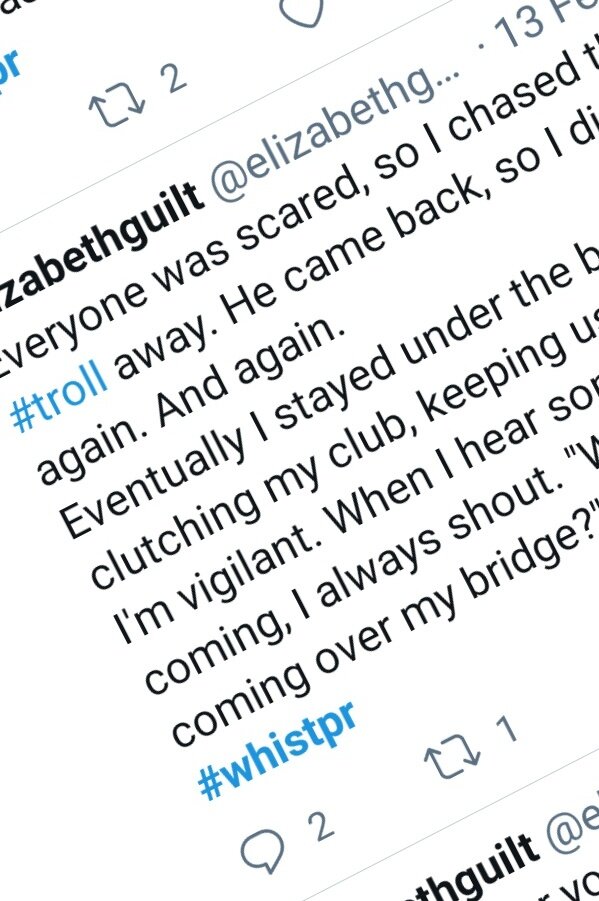When I first set up my Twitter account and began questing around for other writers to talk to, I found a lot of bewildering hashtags. #vss365, #WeirdVSS, #SatSplat, #AchtenWrite… they popped up over and over again, and I had (broadly speaking) no idea what was happening. What does VSS even stand for?
Over time, I figured it out. These are all writing prompts - some weekly, some daily - that provide a word and invite you to respond with a tweet-sized piece of writing inspired by or including the word. Some prompts are more specific in their goal - like #PoetryIn13, #HaikuChallenge or #HangTenStories - challenging the writer to respond with a particular form, in a set number of words. The VSS, by the way, stands for “very short story”.
Most writing prompts have a host, whose role is to post the prompt word - some prompts rotate among different hosts, some are always organised by the same person. Searching Twitter for the hashtag, and clicking on the “People” tab, will usually get you reasonably quickly to the current host. Some prompts, like #vss365 (via @vss365official), publish rules, and a charter; others are much more informal affairs.
My favourite prompt is #whistpr, which aims “to spark your creativity in words, art, music, gifs, thoughts”. It is organised by the very lovely @whistberry, who posts a daily word with an original artwork to match. (And how she finds time for that is a mystery to me; I live in vague but constant fear that she will realise what a lot of work it is and stop.) There is a small, friendly, community of #whistpr writers who comment on and promote each other’s tweets, and - compared to the general dumpster fire of Twitter-at-large - it’s all genuinely lovely.
I aim to write a story for #whistpr every day, although I don’t always manage it. I enjoy the challenge of trying to come up with something for each word, and find it a useful exercise to have to nail down an idea every day. Each day I post to the hashtag is a day I have written something, even if it was only 240 characters long. And some of the ideas I tuck away for future reference - my most recently-published story, Smiles, grew from a #whistpr tweet in response to the prompt-word “grin”.
Fitting a story into such a small space is also an interesting discipline. I often write something which spills over to 260, 280, 300 characters… and then prune it. It’s amazing how many words can be removed, how much can be packed into a sentence. Is that adjective essential? Does that adverb bring anything to the party (spoilers: it probably doesn’t). Do you really need to say “I used to lie awake at night”? If you’re lying awake, it’s implicitly at night unless otherwise specified. Not every piece of writing needs to be so compact, but tersity is a great weapon to practise wielding.
It’s also a surprising indicator of what people like to read. Some of my favourite stories have gone fairly unnoticed, while tweets I felt were rushed out before the end-of-day deadline proved unexpectedly popular. Some of that is the luck of Twitter: did someone happen to notice it and retweet? Maybe it just got lost in the noise. But the days when a few people comment that they liked something are instructive: this might be an idea worth keeping.
There should be a Twitter widget just below showing my most recent #whistpr tweets - if you’re on Twitter, why not come and join in the fun?
